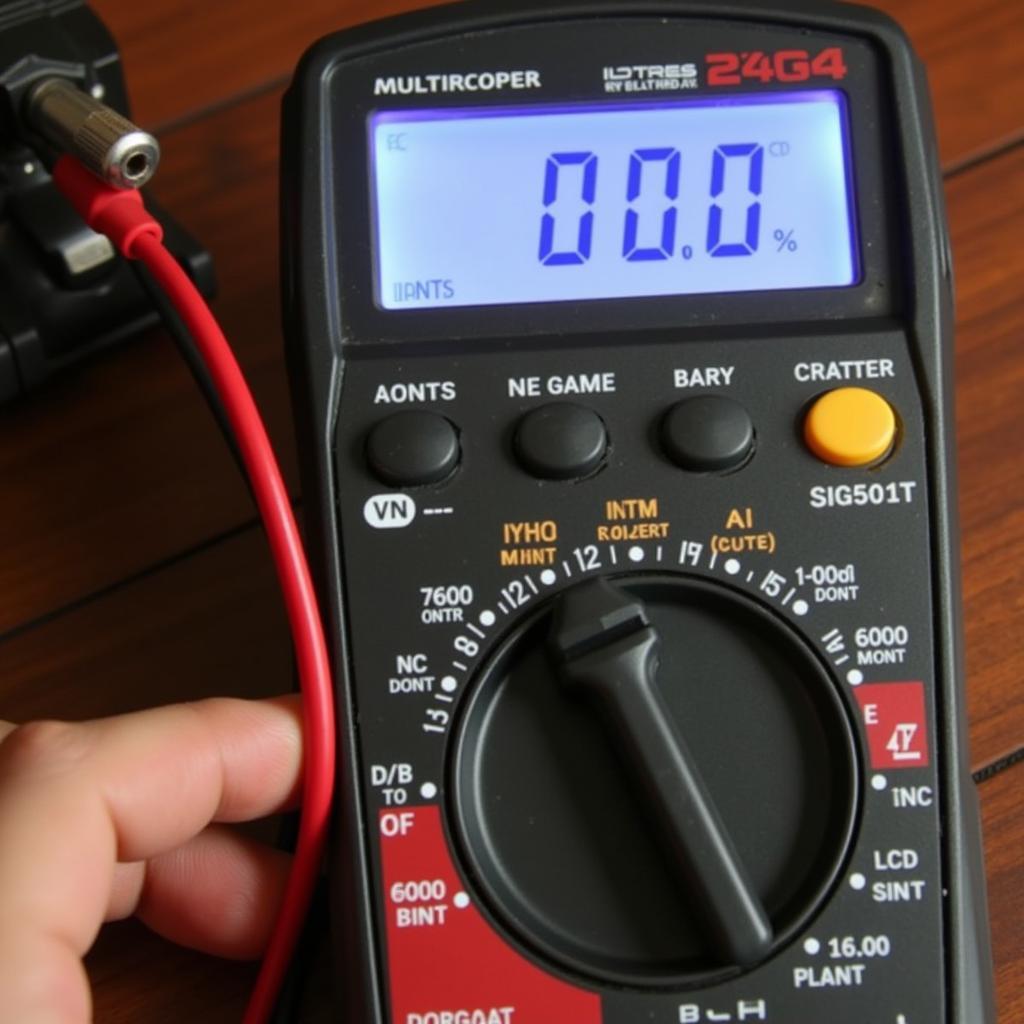The Nissan Sentra brake warning light can be a source of anxiety for drivers. Understanding why this light illuminates and knowing how to address the issue is crucial for safe driving. This comprehensive guide explores the common causes of the Nissan Sentra brake warning light, provides troubleshooting steps, and discusses solutions, empowering you to take control of the situation.
Understanding the Nissan Sentra Brake Warning Light
The brake warning light in your Nissan Sentra serves as a critical safety indicator. It’s designed to alert you to potential problems within your braking system. Ignoring this warning can lead to serious safety risks. The light can indicate a range of issues, from low brake fluid to more complex problems with the braking system components.
One potential cause is low brake fluid. Brake fluid is essential for transferring force from the brake pedal to the brake components, stopping your vehicle. A leak in the brake lines or worn brake pads can cause the fluid level to drop, triggering the warning light. This requires immediate attention. Another common culprit is a faulty parking brake switch. If the switch is stuck in the “on” position, even slightly, the warning light might stay on.
Troubleshooting the Brake Warning Light
Before panicking, there are some simple checks you can perform. First, check your parking brake. Ensure it’s fully disengaged. If it is, and the light remains on, inspect the brake fluid level in the master cylinder reservoir. The reservoir is usually located under the hood, near the firewall. If the fluid is low, adding brake fluid might temporarily resolve the issue, but it’s crucial to identify the underlying cause of the low fluid. A leak in the brake system can be dangerous and requires professional attention.
If the brake fluid level is adequate and the parking brake is off, further diagnosis is needed. This might involve checking the brake lines for leaks, inspecting the brake pads for wear, or testing the brake sensors. These tasks often require specialized tools and knowledge.
Similar to 2006 nissan sentra brake warning light on, other model years might experience similar issues. Checking the brake light switch is another important step. A malfunctioning switch can cause the brake lights to stay on, potentially draining the battery and triggering the brake warning light.
When to Seek Professional Help
While some causes of the brake warning light can be addressed with simple checks, many require the expertise of a qualified mechanic. If you’re unsure about any aspect of the braking system, it’s always best to err on the side of caution and seek professional help. A mechanic can diagnose the issue accurately and perform the necessary repairs to ensure your safety.
Common Questions About the Nissan Sentra Brake Warning Light
Why is my Nissan Sentra brake warning light on? The brake warning light can illuminate for various reasons, including low brake fluid, a faulty parking brake switch, worn brake pads, or problems with the ABS system.
What should I do if my brake warning light comes on? Safely pull over and check your parking brake. If it’s disengaged and the light persists, check your brake fluid level. If the fluid is low, add brake fluid but promptly seek professional help to identify the cause of the leak.
Can I drive with the brake warning light on? It’s strongly advised against driving with the brake warning light illuminated. This indicates a potential problem with your braking system, which can compromise your safety.
How much does it cost to fix a Nissan Sentra brake warning light issue? The cost of repair varies depending on the underlying cause. It can range from a simple top-up of brake fluid to more expensive repairs like replacing brake pads, rotors, or calipers.
This aligns with the information provided in nissan sentra auto brake warning light, emphasizing the importance of prompt diagnosis.
How often should I check my brake fluid? It’s recommended to check your brake fluid level at least once a month as part of your regular vehicle maintenance.
What is the difference between the brake warning light and the ABS light? The brake warning light indicates a general problem with the braking system, while the ABS light specifically relates to the Anti-lock Braking System.
Can I fix the brake warning light issue myself? While some simple checks can be performed at home, it’s best to consult a qualified mechanic for any brake-related repairs to ensure your safety. This correlates with the recommendations for 2018 nissan sentra brake malfunction warning light, highlighting the need for professional expertise. For those experiencing issues with both brake and battery warning lights, brake and battery warning lights on nissan sentra provides valuable insights. Similarly, 2002 nissan sentra battery and brake warning lights offers specific information for that model year.
Conclusion
The Nissan Sentra brake warning light should never be ignored. Understanding its potential causes and taking appropriate action is essential for maintaining your safety and the safety of others on the road. Addressing the issue promptly, whether through simple checks or professional assistance, can prevent further damage and ensure reliable braking performance. Don’t hesitate to consult a qualified mechanic if you have any doubts about your vehicle’s braking system.


